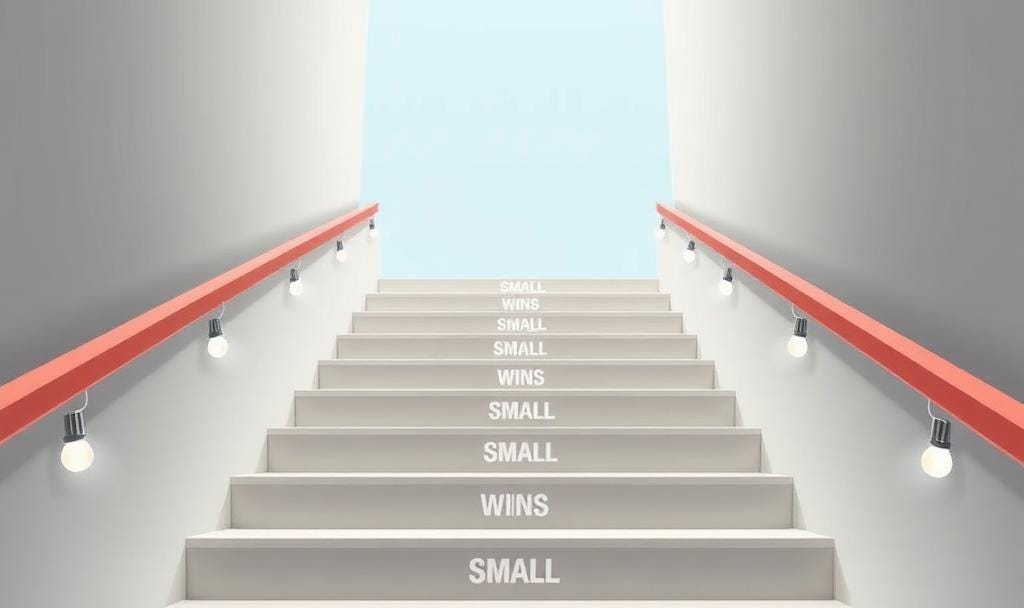You say you want to go to the gym.
You say you want to start a new diet.
You say you want to finish your work project.
But for some reason, something stops you from taking action.
That’s exactly what we’re going to explore today.
- What happens in your brain when you procrastinate.
- The Procrastination Equation that explains why we delay tasks.
- How you can use this equation to overcome procrastination.Let’s begin.
Why Do You Procrastinate?
Your brain doesn’t like wasting resources.
When you decide to do something, your brain has to allocate valuable resources:
1. Attention
2. Physical energy
3. Time
4. Material resources (money, effort, tools, etc.)
Every action costs something.
So, while intention is easy, action is expensive.
This is where procrastination happens—in the gap between intention and action.
A brain balancing "Intention" on one side and "Action" on the other, with “Procrastination” in the middle.

What is the Procrastination’s Equation?
Your brain doesn’t randomly decide whether to do something or not.
It follows an equation—let’s call it the Procrastination Equation:
Sounds complicated? Let’s break it down.
1. Expectation of Outcome
“If I do this task, what will I get?”
Your brain asks this before every action.
Example:
When you open a chocolate, your brain expects a sugar rush.
When you study, your brain expects good marks (but much later).
The stronger your expectation of reward, the more likely you are to take action.
2. Value of Outcome
“How much do I care about the result?”
Even if the expectation is high, if you don’t value the outcome, you won’t take action.
Example:
If you love the taste of chocolate, you’ll eat it.
If you don’t really care about grades, you’ll delay studying.
3. Timing of Outcome
When will I get the reward?
Your brain is not good at long-term planning.
The limbic system (primitive brain) only cares about immediate rewards.
It doesn’t know how to think 5 or 10 years ahead.
Example:
Investing in mutual funds (benefit comes after 10 years) 🆚 Getting ₹10,000 today
Studying now (results after 3 months) 🆚 Watching Netflix now (instant enjoyment)
Your brain will always choose the shorter reward cycle unless you override it.

4. Tolerance to Delay
Am I okay with waiting for my reward?
Some people have higher delay tolerance than others.
For example:
A person with low tolerance will struggle with long-term goals.
A person with high tolerance can stick to a workout plan for months before seeing results.
How the Procrastination Equation Affects You
Let’s take a real-world example:
Scenario: Studying for an Exam vs. Watching Netflix
Studying for Exams:
✅ Expectation: If I study, I will get good marks.
✅ Value: Good marks are important.
❌ Timing: The reward comes 3 months later.
❌ Tolerance: I don’t like waiting that long.
Watching Netflix
✅ Expectation: If I watch Netflix, I will feel good right now.
✅ Value: I enjoy watching shows.
✅ Timing: The reward is instant.
✅ Tolerance: I don’t want to feel bad right now.

How to Stop Procrastinating?
The secret to overcoming procrastination:
Become aware of this equation and change the variables.
1. Increase Expectation of Outcome
Visualize the reward.
Example: Imagine how proud you’ll feel after completing a workout.
Remind yourself why the task matters.
2. Increase Value of Outcome
Make the goal meaningful.
Example: Instead of just saying, "I want to work out," say, "I want to be fit so I can enjoy life without health issues."
3. Reduce Timing Delay
Create mini-goals with smaller rewards.
Example: Instead of saying, "I will study for 3 months," break it into daily wins (e.g., "If I complete this chapter, I get a reward").
4. Increase Tolerance to Delay
Train your brain to handle delayed gratification.
Example: Meditate, practice patience, and remind yourself that long-term rewards are worth it.
Here are my suggestions
If you struggle with procrastination, start small.
Try applying this equation to a simple task, like:
Going for a 5-minute walk every evening
Drinking an extra glass of water daily
Reading one page of a book
Once you build momentum, expand to bigger tasks.
You Can Beat Procrastination
Procrastination isn’t about laziness—it’s just your brain making decisions based on reward calculations.
Now that you understand the Procrastination Equation, you can:
Recognise why you delay tasks
Identify what’s stopping you
Change the variables to make action easier
Start small. Be patient. Your future self will thank you.
If you’re serious about overcoming procrastination and mastering focus, join the NeuroMastery Bootcamp Waitlist, where we dive into: How to train your brain to take action immediately, Techniques to increase willpower and self-discipline and Practical neuroscience strategies for productivity. Join the waitlist Now & Take Control of Your Habits!








